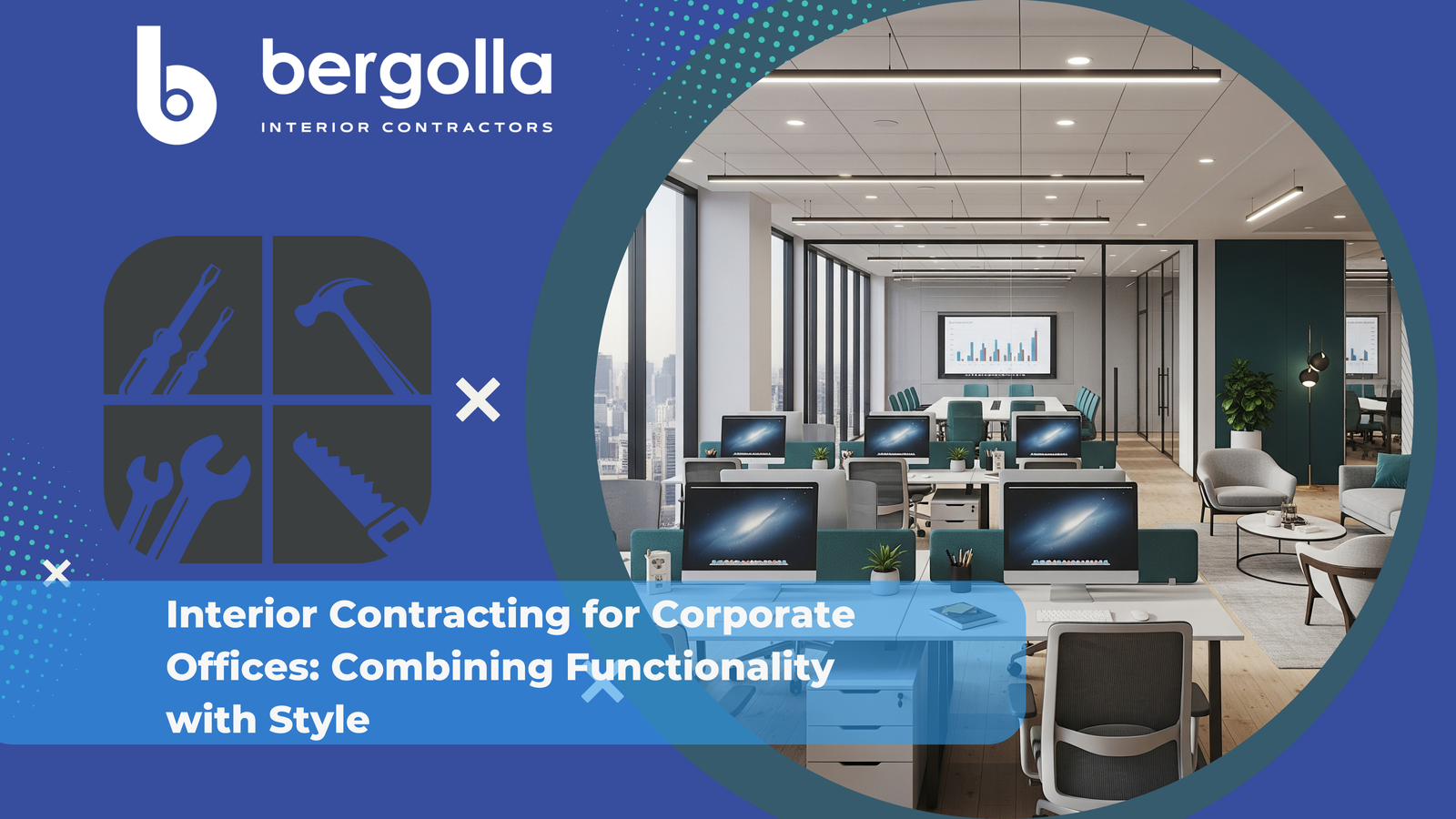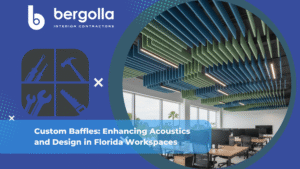Introduction
A modern corporate office is more than just desks and chairs; it’s a strategic space that shapes productivity, creativity, and brand identity. That’s why interior contracting for corporate offices matters so much.
With the right contractor, companies can create work environments that combine functionality with style, reflecting their brand while supporting daily operations and employee well-being.
What Is Interior Contracting?
Interior contracting covers the complete execution of an interior design project, including:
- Space planning
- Electrical and plumbing works
- Carpentry and partitions
- Flooring and ceilings
- Lighting and furniture installation
It brings design concepts to life, ensuring the space is safe, compliant, functional, and aesthetically aligned with the brand.
Balancing Functionality with Style
Great office design isn’t about choosing trendy colors; it’s about understanding how people use the space and creating an environment that helps them work better.
Functional Needs to Address
Adequate storage and organization
Efficient traffic flow between departments
Quiet zones for focused work
Collaboration areas and meeting rooms
Ergonomic furniture to support health
Adding Style and Personality
Modern lighting fixtures for ambiance
Brand colors in walls or furnishings
Art, graphics, or custom installations reflecting company culture
Stylish reception areas that impress visitors
The goal is to create a space employees are proud of and where clients feel your professionalism.
Trends in Corporate Office Interior Contracting
Open Plan with Flexible Zones
Open layouts encourage teamwork, but adding:
- Movable partitions
- Soundproof pods
- Breakout areas
helps balance collaboration with privacy.
Sustainable and Green Design
Use of eco-friendly materials
Energy-efficient lighting and HVAC systems
Biophilic elements like living walls and indoor plants
These choices boost employee wellness and demonstrate corporate responsibility.
Technology Integration
- Smart lighting and climate control
- Built-in screens and AV equipment in meeting rooms
- Cable management systems for clean workspaces
Technology makes offices more efficient and future-ready.
Brand-Centric Spaces
Walls, signage, and furniture choices that subtly reflect brand identity create cohesion and reinforce your message to employees and clients.
Why Hire a Professional Interior Contractor?
Expertise and Compliance
Contractors understand local building codes, safety standards, and ergonomic best practices, ensuring your office isn’t just stylish, but also compliant and safe.
Time and Budget Efficiency
Experienced contractors can:
- Source materials at better prices
- Manage schedules
- Prevent costly mistakes
- Coordinate between different trades
This keeps projects on track and minimizes disruptions to business.
Quality Assurance
Professionals deliver a finish that lasts, helping avoid quick wear-and-tear that can result from DIY or low-cost solutions.
Customizing Your Office to Your Team’s Needs
Every company works differently. A professional contractor:
- Study your workflow
- Learns about department sizes
- Understands client interaction patterns
Then, they tailor spaces to support your daily activities, whether it’s quiet zones for developers or casual lounges for creative teams.
Key Elements for an Effective Office Interior
A reception area that sets a professional tone
Flexible meeting rooms with modern AV tools
Open workspaces balanced with private booths
Kitchens and break rooms that support relaxation
Consistent design language that ties it all together
Cost Considerations
Factors that affect project cost:
- Office size and location
- Material and furniture choices
- Scope of renovation vs. new build
- Custom features or branding elements
Investing in durable, functional design often saves money over time through reduced maintenance and happier, more productive staff.
Conclusion
Interior contracting for corporate offices isn’t just about choosing colors; it’s about designing a workspace that works as hard as your team does.
The right contractor will:
Understand your brand and workflow
Create stylish, ergonomic spaces
Ensure safety, compliance, and durability
In the end, a well-designed office supports productivity, improves employee satisfaction, and makes a powerful impression on clients.





